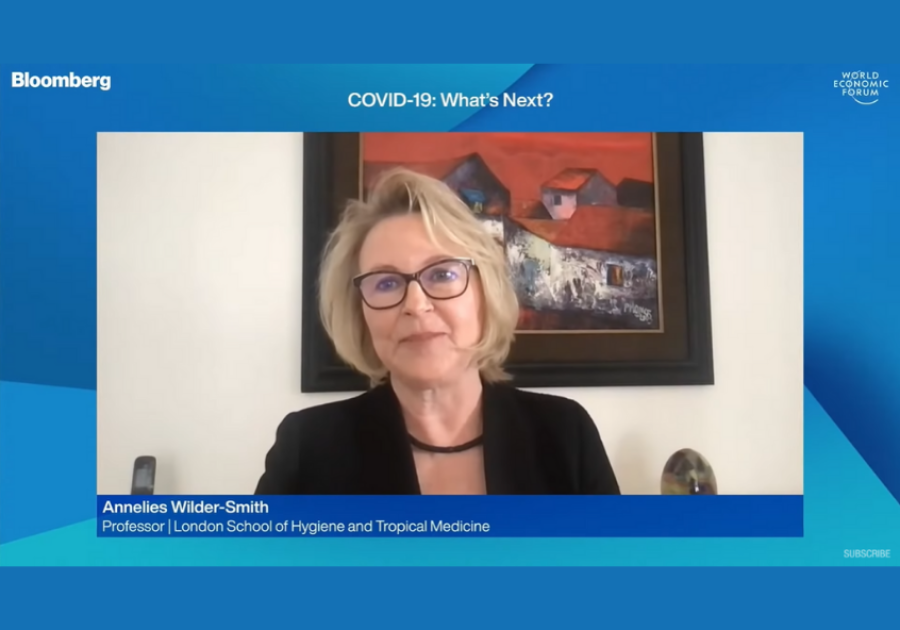Professor Annelies Wilder-Smith joins Dr Anthony Fauci on COVID-19 panel at Davos
19 January 2022 London School of Hygiene & Tropical Medicine London School of Hygiene & Tropical Medicine https://lshtm.ac.uk/themes/custom/lshtm/images/lshtm-logo-black.png
The expert panel, which included Dr Anthony Fauci, Director of the National Institute of Allergy and Infectious Diseases (NIAID), Stéphane Bancel, CEO of Moderna, and Richard Hatchett, CEO of the Coalition of Epidemic Preparedness and Innovations (CEPI), discussed the possible scenarios for COVID-19 in 2022 and beyond.
Speaking on the first day of the WEF's virtual Davos Agenda summit, Professor Wilder-Smith told the panel that while there is a high probability that Omicron will not be the last COVID-19 variant, a new strain is likely to be less severe, but it remains important to prepare for all scenarios, including a variant with high transmissibility and high mortality.
However, with population level immunity increasing, Professor Wilder-Smith explained that the world would be better placed to respond to these variants.
She said: “Two years ago we had a population of 7.7 billion people with zero immunity to this virus. Now, more than 50% of the world’s population has received two doses and this is further strengthened with the rapid immunity being built up by natural infection. We now need to rethink and re-evaluate some of our strategies.”
Professor Wilder-Smith also highlighted the importance of vaccine equity for accelerating the end of travel restrictions.
She said: “Travel restrictions only really make sense if a country has a much lower incidence and wants to protect itself from a much higher incidence. We will get to an equilibrium where most countries will have similar incidence, but we are not there yet. We still have an absolutely inequitable distribution of vaccines and this drives all these problems with travel.”
The Davos Agenda summit features heads of state and government, CEOs, global health experts and other leaders participating in “State of the World” sessions that focus on addressing the world’s most critical challenges, from climate change to preparing for the next pandemic.
Professor Wilder-Smith serves as Consultant to the Initiative of Vaccine Research at the World Health Organization (WHO), as Focal Point for the SAGE Working Group on COVID-19 vaccines, helping to formulate policy recommendations for the use of these vaccines. With a career spanning more than three decades, she specialises in emerging viral diseases such as Zika, dengue and SARS. In 2003, she was at the forefront of the SARS epidemic in Singapore.
Our postgraduate taught courses provide health practitioners, clinicians, policy-makers, scientists and recent graduates with a world-class qualification in public and global health.
If you are coming to LSHTM to study a distance learning programme (PG Cert, PG Dip, MSc or individual modules) starting in 2024, you may be eligible for a 5% discount on your tuition fees.
These fee reduction schemes are available for a limited time only.